Here, we are covering activities for auditory learners, but you’ll also discover types of learners (an auditory learner is just one learning style!) and how to best support students with specific listening needs. Let’s get started with auditory processing activities to support auditory learners. For students with auditory sensitivities that impact learning and participation in the classroom, understanding the auditory learner is essential.
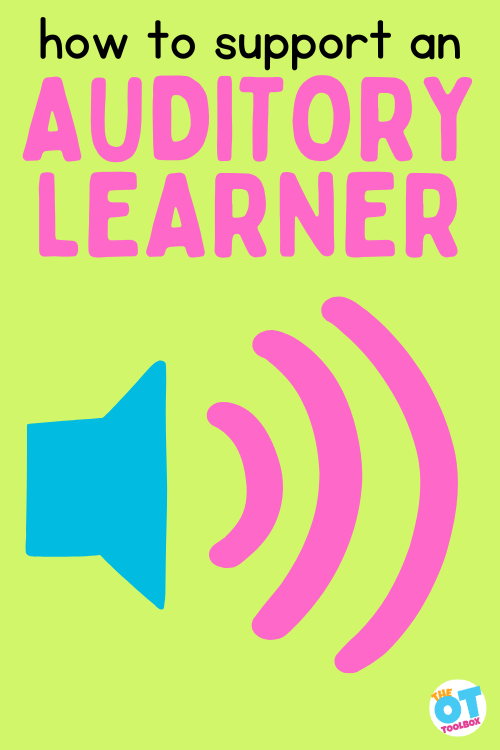
What is an Auditory Learner?
Learning styles are the manner in which we best learn and process information.
Examples of learning styles include auditory learners, kinesthetic learners, and visual learners. Each of us has a preference (either obvious or less obvious) to one style of learning or another. As children develop, they can progress through different stages and preferences of learning.
Kids can succeed with a variety of learning styles. One strategy is to address the sense of hearing when teaching new concepts or reinforcing older concepts.
There are many characteristics of a student who is an auditory learner. A few indications include the children who can’t seem to stop talking, the child who repeats verbal information out loud, or the child who prefers discussion in classroom activities.
Read below to find more characteristics of auditory learners and activities for auditory learners in the classroom or at home.
You may have heard the term “audio learner” used as well. An audio learner is another phrase that means auditory learner, and refers to someone who learns best through auditory sources of information.
Audio learners/auditory learners are individuals who prefer to process information through listening, speaking, and hearing. They have a natural inclination towards absorbing and retaining information through sound and auditory input.
This means that for them, sources of information such as lectures, discussions, audio recordings, podcasts, and verbal instructions are the best ways to absorb and retain information.
Audio learners tend to excel in activities that involve spoken language, such as participating in group discussions, engaging in debates, or listening to audiobooks. They often have strong listening skills and can easily grasp concepts by hearing them explained or discussed aloud. To optimize their learning experience, audio learners may benefit from using techniques like reading aloud, engaging in conversations, recording and replaying lectures, or utilizing mnemonic devices that involve sound and rhythm.
Auditory Memory
Auditory memory, or audio memory is another concept that should be covered.
Auditory memory (aka audio memory) refers to the ability to remember and recall information that has been heard or listened to. It is a component of auditory learning and involves the retention and retrieval of auditory stimuli or information.
People with strong audio memory can remember and recall spoken words, conversations, lectures, music, or any other auditory input with relative ease. This type of memory can be advantageous for individuals who learn best through auditory means, as they can remember information more effectively when it is presented in an audio format.
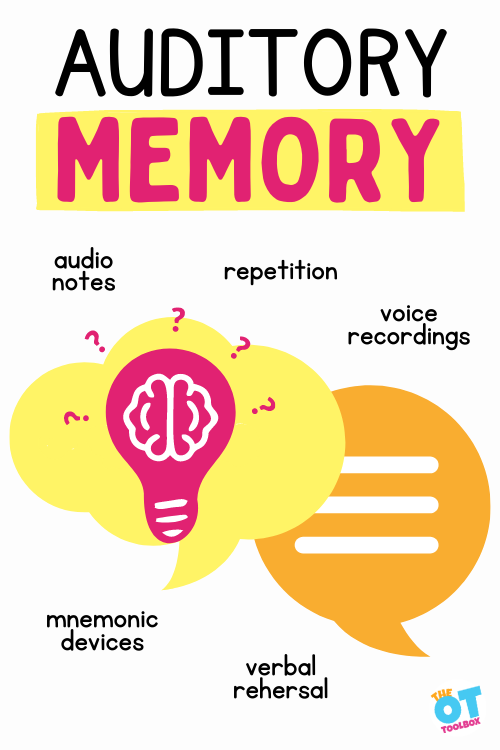
To improve auditory memory, try strategies such as:
- repetition
- verbal rehearsal
- mnemonic devices
- voice recordings
- audio notes
Using these tools can assist in reinforcing and retaining information for individuals with a preference for auditory learning.
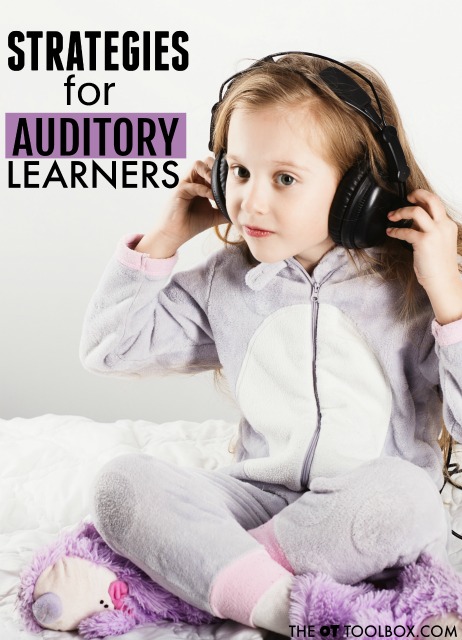
Characteristics of Auditory Learners
Not all children who are auditory learners will experience all of the characteristics below.
- Prefer listening in the classroom
- Like to talk
- Repeats directions
- Can’t concentrate when there are noises in the environment
- Can’t fall asleep to music or a television
- Benefits from repetition of directions
- Learns best when listening
- Learns well from videos
- Easily recalls songs, poems, and phrases
- Talks out decision processes
- Remembers facts in detail when hearing them
- Prefers to hear all of the facts when learning something new
- Hums or talks to self
- Easily can identify differences in pitch or tone of sounds
- Follows verbal instructions better than written instructions
- Prefers smaller groups in the classroom (limits the auditory distractions)
- Remembers facts better after repeating them
- Talks or moves lips while they write
- Recalls a person’s tone of voice when remembering a conversation
- When reading or writing, written information may not make sense until it’s been read aloud
- Writes with light pencil pressure
- Children who learn best through the auditory sense may benefit from auditory strategies.
- May have auditory sensitivities in the classroom
Try some of the activities for auditory learners that are listed below:
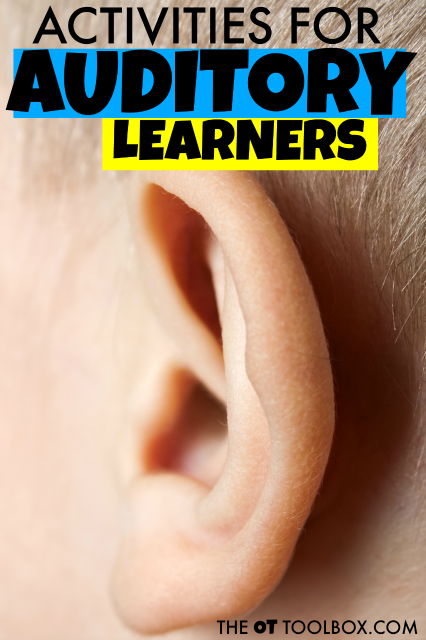
Activities for Auditory Learners
For individuals who are auditory learners, an auditory learning style of specific activities can support intake and retention of information.
- Read homework directions out loud
- Record facts on video and then replay it. A mobile phone or tablet works well for this strategy.
- Sing facts to a tune
- Work on commonly misspelled words like those words with similar diagraphs. Use hands-on, multisensory activities to support auditory needs.
- Write a song when memorizing facts or spelling words
- Teach to other students or even to stuffed animals
- Practice in front of a mirror
- Try a whisper phone
- Listen to books on tape using headphones
- Rhyme facts
- Spell words out loud in different pitches and tones
- Use noise eliminating headphones in the classroom or during tests
- Find a quiet space for homework
- Turn off distractions. Consider televisions, phones, or even fans
- Use mnemonic devices to memorize facts
- Listen to audiobooks
- Use oral reports for classroom projects
- Allow students to record portions of homework or projects onto devices
- Make flashcards and read them out loud
- During classroom lessons, clap or speak louder during important parts
- Speak in syllables
What are your best strategies to help auditory learners?
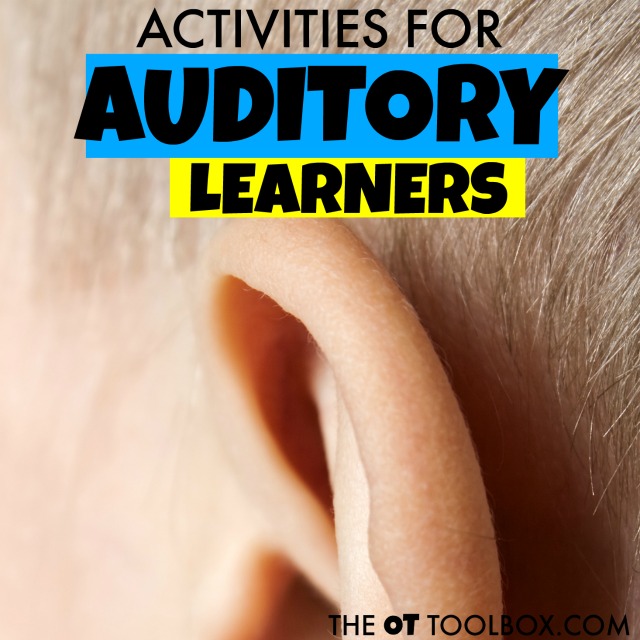
The Auditory Processing Kit is a printable packet to address listening skills, whole body listening, listening comprehension, active listening, and auditory processing needs. This printable packet contains active listening activities, hands-on strategies, activity cards, visual cards, handouts, and more.
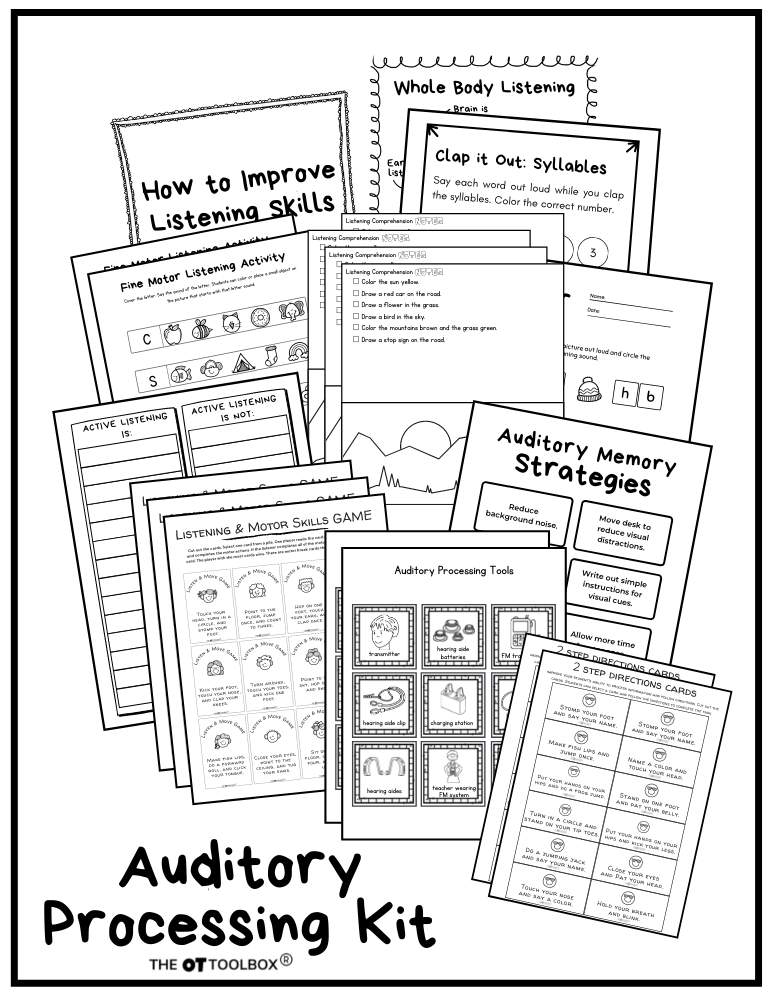
The Auditory Processing Kit is a tool to support learners by building skills in listening comprehension, auditory processing needs, and much more. The tools offer support to learners with hyper-responsive or hypo-responsive auditory systems. Therapists love the hands-on activities to support learning and active listening through play and handwriting tasks.
- Listening Comprehension
- Fine Motor Listening Skills
- How to Improve Listening Skills Poster
- Clap It Out Syllables Orthographic Activities
- Beginning Sounds Letter Activity
- Rhyming Words Activity
- Activity Listening Activity
- Hearing Skills Activity
- Auditory Memory Strategies
- What Does Active Listening Look Like?
- Whole Body Listening Activity
- Whole Body Listening Poster
- Listening and Motor Skills Game
- 2 Step Direction Cards
- How to Support Hyper-Responsiveness of the Auditory Sense (handout and info sheet)
- How to Support Hypo-responsiveness of the Auditory Sense (handout and info sheet)
- Auditory Processing Tools Cards
- Auditory Processing Speed -2 Digit Numbers
- Auditory Processing Speed -3 Digit Numbers
- Auditory Processing Speed -4 Digit Numbers
Use the handouts and posters to teach about the auditory system and auditory sensitivities, with strategies to support individualized needs. Get your copy of the Auditory Processing Kit today.

Colleen Beck, OTR/L has been an occupational therapist since 2000, working in school-based, hand therapy, outpatient peds, EI, and SNF. Colleen created The OT Toolbox to inspire therapists, teachers, and parents with easy and fun tools to help children thrive. Read her story about going from an OT making $3/hour (after paying for kids’ childcare) to a full-time OT resource creator for millions of readers. Want to collaborate? Send an email to contact@theottoolbox.com.

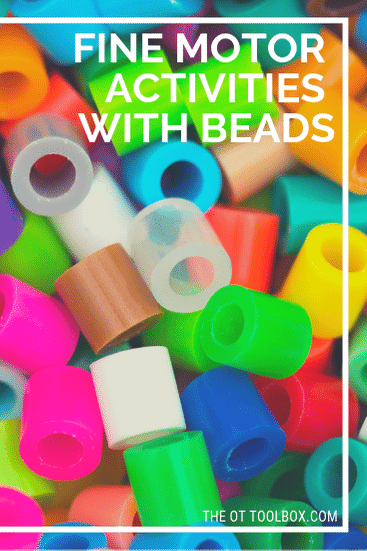
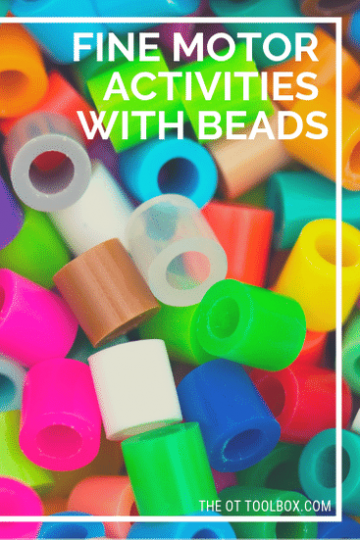
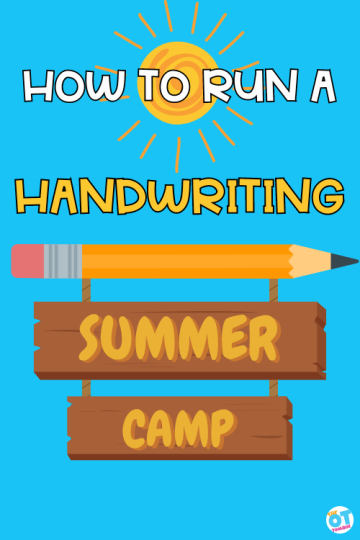
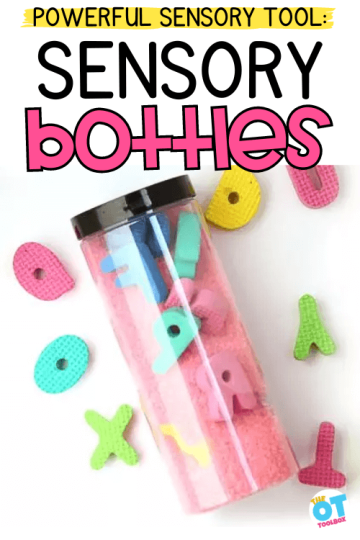
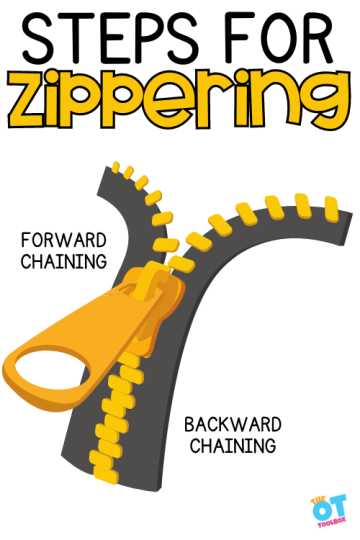
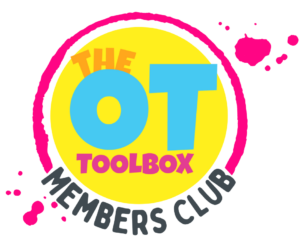
1 thought on “Activities for Auditory Learners”
Comments are closed.